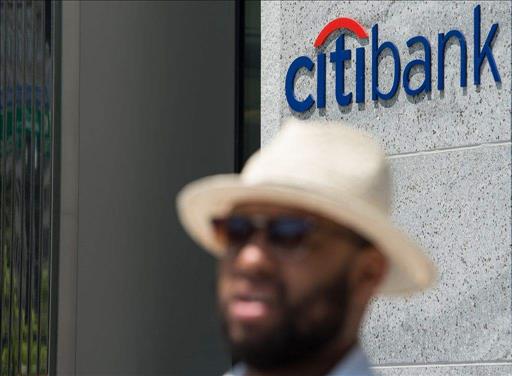
403
Sorry!!
Error! We're sorry, but the page you were looking for doesn't exist.
The bullish case for Citigroup shares
(MENAFN- Khaleej Times) In the topsy turvy world of Wall Street in 2016, the winning strategy was to buy US utilities and sell global banks (Deutsche Bank and Credit Suisse down 50 per cent as is the Italy Bank index!). In fact, utilities have beaten banks by 63 per cent since 2008. Citigroup shares were a disaster since October 2015, when they peaked at 56 only to plunge to 35 on concerns about Brazil, energy loan losses and carnage in the high yield debt market. Yet while the post Brexit fall in Citi to 39 was the ideal level to reaccumulate America's most global money centre bank, even in a "lower for longer" Fed Funds scenario. This bank's shares doubled after I went gaga on them in this column in 2012 at $25 when Citi failed the Fed stress test and CEO Vikram Pandit was ousted in a boardroom palace coup. There is still ample sunshine for me in Citi shares in 2016-17. Citigroup beat second quarter earnings consensus, thanks to excellent bond/foreign exchange trading revenues and investment banking fees, positive metrics in Taiwan/South Korea and Mexico consumer banking, release of loan loss reserves from Citi Holdings and loan growth in the Institutional Client Group (ICG). This is not to gloss over the ugly ducklings in Citi's corporate constellation - the Global Consumer Bank, mediocre net interest income growth due to a flatter US Treasury bond yield curve, potential Brexit related losses in London, equities capital markets and cost cutting in the corporate bank. Some of the bottom line headwinds faced by Citi are outside the control of management, such as the 41 per cent fall in equity underwriting revenues (the IPO freeze) and the sharp fall in mergers and acquisition revenues (a weak pipeline for all dealmakers on Wall Street). It is positive that Citi has managed to raise its fully loaded, Basel Tier One capital ratio from 12.3 per cent in December 2015 to 12.6 per cent now, thanks to the drop in Citi Holding's risk weighted assets. It is even more positive that Citi repurchased 30 million shares in Q2 2016. Citigroup has the world's best franchise in global emerging markets (there is no longer a credible investment case in Standard Chartered Bank at current prices) and will benefit from the macro tailwind in North American consumer banking. As Citi Holdings ($100 billion in assets, down from $500 billion just after the TARP bailout) winds down, excess capital will be returned to shareholders via a share buyback and dividends. At my (ideal) $42 entry price, Citigroup would trade at 0.68 times tangible book value, a discount to New York money centre bank peers. I doubt if this discount will disappear just year. Citigroup has almost failed twice since 1991 and only survived thanks to George W. Bush's TARP bailout in November 2008. Fund managers are skeptical that Citi's complex, "too big to fail" business model could once again prove its Achilles heel in a future global economic recession. A post-Lehman restrictive milieu for bank regulation has only been amplified by the LIBOR and foreign exchange rate rigging scandals. This negative bank regulation milieu could be exacerbated in the Clinton White House. The Brexit vote could also pressure Citi shares in the months ahead as the bank derives six per cent of its revenues and five per cent of its loans from the UK and owns major businesses in London that "passport" their products to the EU. Citigroup has the highest exposure to Latin America, the Middle East and the Pacific Rim among the major US money centre banks, a legacy of its 200 year history and its global expansion under former chairmen Walter Wriston and John Reed. Yet Citi trails the valuation metrics of J.P. Morgan or Wells Fargo because it simply has not leveraged its global franchise into consistent shareholder returns or even a higher dividend yield after the debacle of 2008. Ironically, while emerging markets indices have lagged Wall Street since 2011, I expect their macro metrics to improve in the next five years. This means a US money centre bank with 45 per cent revenue from emerging markets should (hopefully!) be rerated by Mr Market. For now a 42 to 50 trading range for Citigroup is probable.

Legal Disclaimer:
MENAFN provides the
information “as is” without warranty of any kind. We do not accept
any responsibility or liability for the accuracy, content, images,
videos, licenses, completeness, legality, or reliability of the information
contained in this article. If you have any complaints or copyright
issues related to this article, kindly contact the provider above.


















Comments
No comment